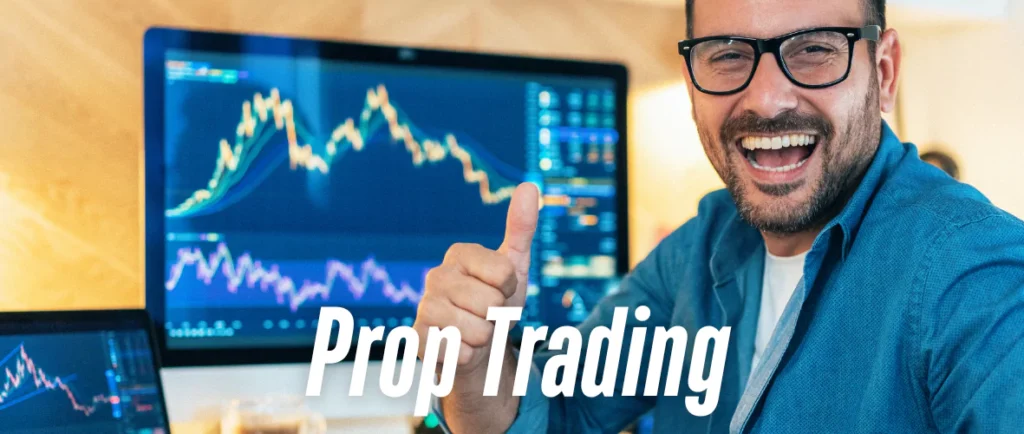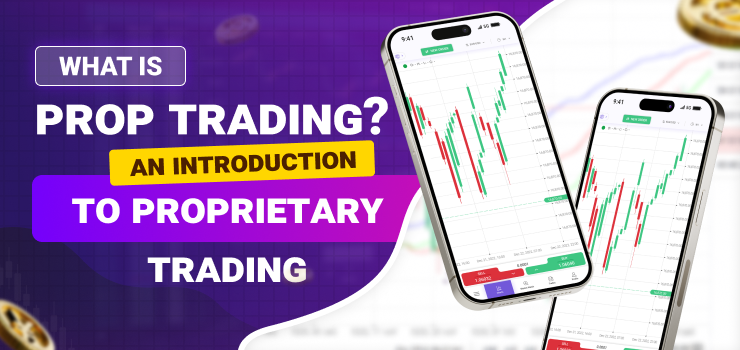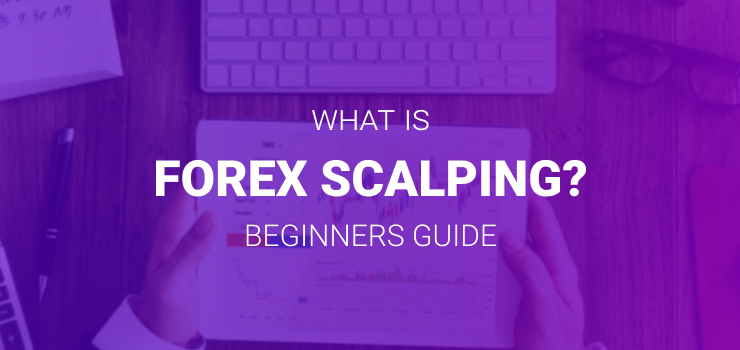You’ve undoubtedly heard the term “prop trading” used in the busy world of finance. However, what does it mean? Let’s explore the interesting world of proprietary trading and all of its details.
What is Proprietary Trading?
At its core, proprietary trading, or prop trading, occurs when a financial institution, like a bank or brokerage firm, trades stocks, bonds, currencies, commodities, or other financial instruments using its own capital, aiming to generate direct profits. Unlike traditional trading, where firms execute trades on behalf of clients, prop trading involves firms taking positions for their own gain.
How Does Prop Trading Work?
Imagine a financial firm as a chef with a secret recipe. Instead of cooking meals (trades) for customers, the chef prepares dishes for personal enjoyment, hoping to win a culinary award (profits). Similarly, in prop trading, firms utilize their own funds to invest in various financial instruments, seeking to capitalize on market movements.
Key Characteristics of Prop Trading:
- Self-Funded: Firms use their own capital, not clients’ money.
- Profit-Driven: The primary goal is to earn profits directly for the firm.
- Risk Exposure: Firms bear all the risks associated with their trading activities.
Common Strategies in Prop Trading
Prop traders employ a variety of strategies to maximize returns. Here are some popular ones:
1. Arbitrage
This involves exploiting price discrepancies of the same asset in different markets. For example, buying a stock at a lower price in one market and simultaneously selling it at a higher price in another.
2. Statistical Arbitrage
Traders use mathematical models to identify pricing inefficiencies between related financial instruments, aiming to profit from these anomalies.
3. Merger Arbitrage
Also known as risk arbitrage, this strategy involves buying and selling stocks of two merging companies to profit from potential price movements during the merger process.
4. Volatility Arbitrage
Traders attempt to exploit differences between the forecasted future volatility of an asset and the implied volatility reflected in options pricing.
5. Global Macro Trading
This strategy focuses on large-scale economic and political events worldwide, making investment decisions based on the anticipated impact of these events on financial markets.
Benefits of Proprietary Trading

Engaging in prop trading offers several advantages to financial firms:
1. Higher Profit Potential
Since firms trade for their own accounts, they can potentially earn higher returns compared to commission-based client trading.
2. Enhanced Market Expertise
Prop trading requires in-depth market analysis, leading firms to develop sophisticated trading strategies and gain a deeper understanding of market dynamics.
3. Diversification
By engaging in various trading strategies across multiple markets, firms can diversify their income streams, reducing reliance on traditional client-based revenue.
Risks Associated with Prop Trading
While the allure of high profits is enticing, prop trading comes with its own set of risks:
1. Financial Losses
Trading with the firm’s own capital means that any losses directly impact the firm’s financial health.
2. Increased Volatility
Prop trading can contribute to market volatility, especially when large positions are taken, potentially leading to significant market swings.
3. Regulatory Scrutiny
Due to the high-risk nature of prop trading, regulatory bodies keep a close eye on such activities to ensure market stability and protect investors.
Regulatory Landscape
In the aftermath of the 2008 financial crisis, regulatory measures tightened around prop trading. A notable example is the Volcker Rule, part of the Dodd-Frank Act, which restricts U.S. banks from engaging in proprietary trading to reduce risk and prevent potential conflicts of interest.
Emerging Trends and Future Outlook in Proprietary Trading
The landscape of proprietary trading is continually evolving, influenced by technological advancements, regulatory changes, and market dynamics. As we look ahead, several key trends are shaping the future of prop trading:
1. Integration of Artificial Intelligence and Machine Learning
Artificial intelligence (AI) and machine learning are revolutionizing prop trading by enabling firms to analyze vast datasets, identify patterns, and execute trades with increased precision. AI-driven tools are becoming more accessible, allowing firms to develop sophisticated trading strategies.
2. Expansion into New Asset Classes
Prop trading firms are diversifying their portfolios by venturing into emerging asset classes, such as cryptocurrencies and decentralized finance (DeFi) products. This expansion offers new opportunities for profit but also introduces unique challenges and risks.
3. Emphasis on Real-Time Analytics and Risk Management
The ability to analyze market data in real time is becoming crucial for prop trading firms. Advanced analytics tools enable firms to monitor market conditions, assess risk exposure, and make informed trading decisions promptly. Implementing robust risk management systems is essential to mitigate potential losses.
4. Regulatory Developments and Market Accessibility
Regulatory bodies are adapting to the evolving financial landscape by considering tailored regulations for non-retail trading firms. For instance, the UK’s Financial Conduct Authority (FCA) is exploring bespoke rules to reduce barriers for specialist trading companies, aiming to enhance market liquidity and competitiveness.
The Role of Technology in Prop Trading
In today’s digital age, technology plays a pivotal role in prop trading. Firms leverage advanced algorithms, artificial intelligence, and high-frequency trading systems to execute trades at lightning speed, capitalize on minimal price discrepancies, and manage vast amounts of data efficiently.
Ethical Considerations and Controversies
Prop trading isn’t without its controversies. Potential conflicts of interest can arise, especially when firms have access to sensitive market information. There have been instances where unethical practices, such as insider trading, have come under scrutiny, leading to debates about the ethical implications of prop trading activities.
Conclusion
Proprietary trading is a complex yet fascinating facet of the financial world. It offers firms the opportunity for substantial profits but also comes with significant risks and ethical considerations. As markets evolve and technology advances, the landscape of prop trading will undoubtedly continue to transform, presenting new challenges and opportunities for those involved.
FAQs
1. What distinguishes proprietary trading from regular trading?
Proprietary trading involves firms trading their own capital for direct profit, whereas regular trading typically involves executing trades on behalf of clients for a commission or fee.
2. How do proprietary trading firms make money?
They employ various strategies, such as arbitrage, statistical analysis, and market speculation, to capitalize on market inefficiencies and price movements.
3. Is proprietary trading legal?
Yes, but it is subject to regulatory oversight to prevent excessive risk-taking and conflicts of interest. Regulations like the Volcker Rule in the U.S. have been implemented to restrict certain prop trading activities by banks.
4. What skills are essential for a prop trader?
A deep understanding of financial markets, strong analytical abilities, proficiency in quantitative analysis, risk management, decision-making, and emotional discipline.



